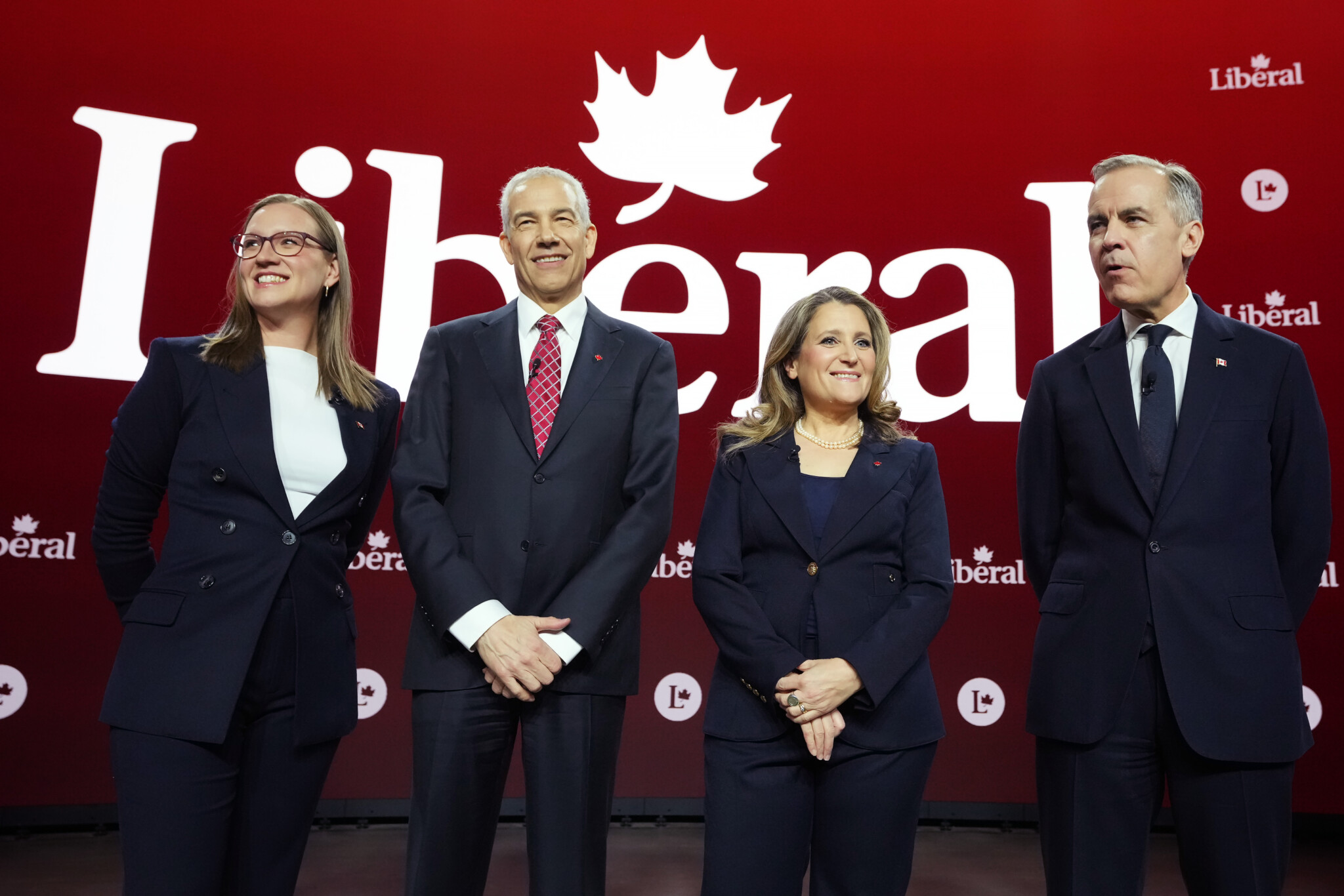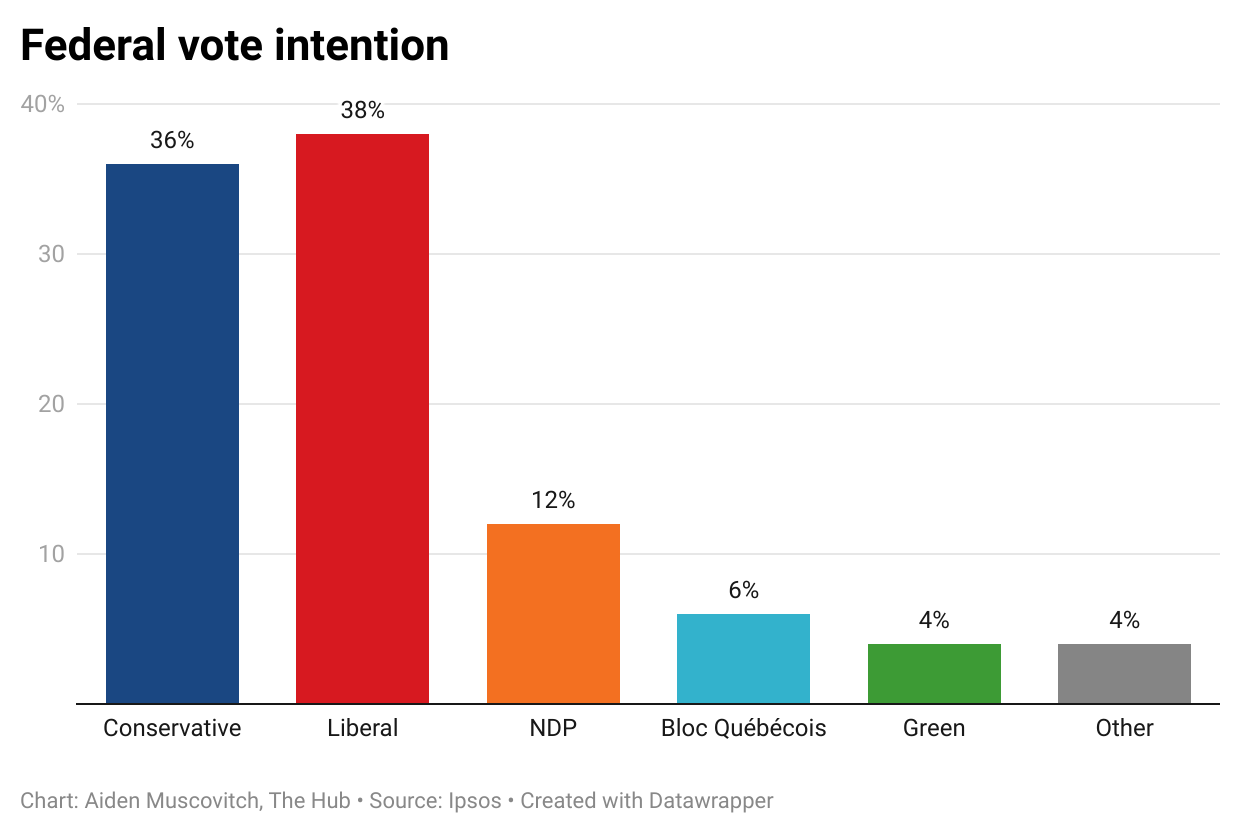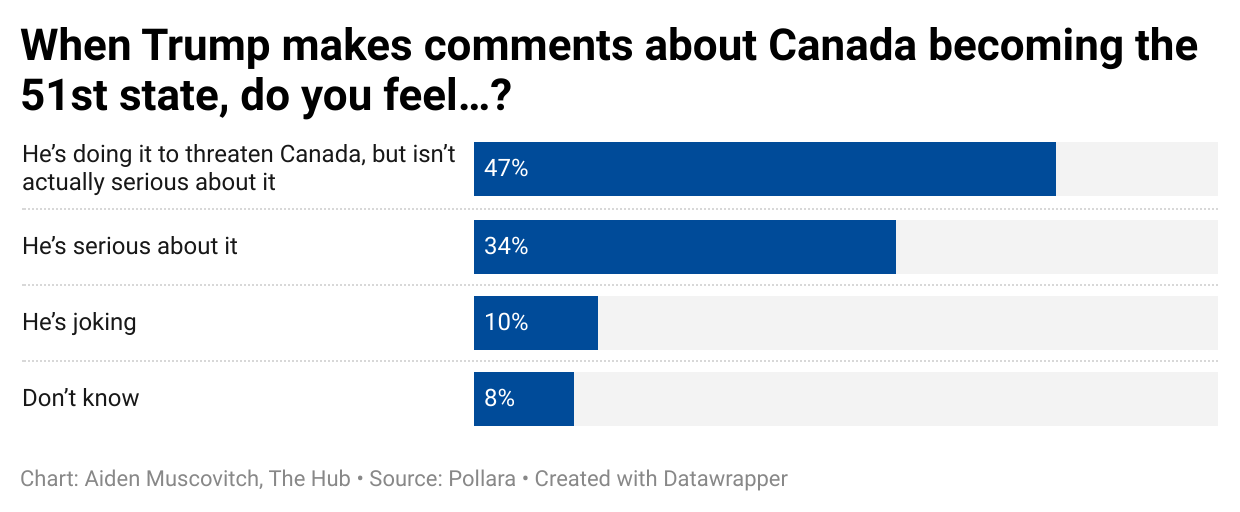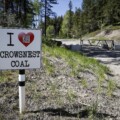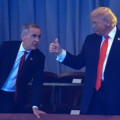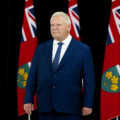This is The Week in Polling, your Saturday dose of interesting numbers from top pollsters in Canada and around the world, curated by The Hub. Here’s what we’re looking at this week.
Recent poll shows the Liberals beating the Conservatives
A new Ipsos poll found that if a federal election was held today, 38 percent of Canadians would vote Liberal, 2 percent more than the 36 percent who would vote Conservative. This is the first time an Ipsos poll has shown the Liberals leading the Conservatives since 2021. Ipsos attributes this shift in the voter landscape to “rising anti-Trump sentiment and anticipation surrounding the Liberal party’s new leadership.”
The NDP vote continues to decrease (down four points since January), occupying 12 percent of the Canadian voter share. The Ipsos poll concludes that voters are fleeing from the NDP and flocking to the Liberals.
Additionally, Canadians feel increased urgency for a federal election to be called, with 86 percent of Canadians agreeing an election should be held right away—up 9 percent from January.
Among major Canadian pollsters, this Ipsos poll is somewhat of an outlier. The only other significant pollster to find the Liberals leading the Conservatives (in this case by one point) was a poll done by EKOS released in late February.
While the polls vary on a matter of degree, there is little difference in direction. Almost all major federal pollsters—besides Abacus Data and Innovative Research—listed on 338 Canada have the Liberals cutting down the Conservatives’ once-large lead to less than 10 points.
Only 10 percent of Canadians think Trump is joking about making Canada his 51st state
According to Pollara’s exclusive polling for The Hub, an overwhelming 92 percent of Canadians have heard U.S. President Donald Trump’s comments about making Canada the 51st American state. But only 10 percent of Canadians believe Trump is joking, 34 percent take him seriously, and 47 percent see the statement as a negotiation tactic.
The share of Canadians who feel angry towards him also sits at 51 percent, the highest level recorded over the past year. Just under 70 percent of Canadians now feel negatively about Trump.
Currently, 63 percent of Canadians view the U.S. unfavourably. That’s a big shift from six months ago when only 30 percent of views were negative.
Earlier this week, Trump said he would terminate what was expected to be another month-long delay and put a 25 percent blanket tariff on most Canadian goods since “drugs are still pouring into [America].” Canada Border Services Agency recently launched Operation Blizzard to target fentanyl and other synthetic narcotics from arriving into and leaving Canada. This month alone, six seizures amounting to 56.1 grams of fentanyl were made to prevent the drug from crossing into the U.S.
Additionally, in a recent press conference between British Prime Minister Kier Starmer and Trump, the subject of Canada’s annexation came up but was quickly shooed away by the Labour leader.
